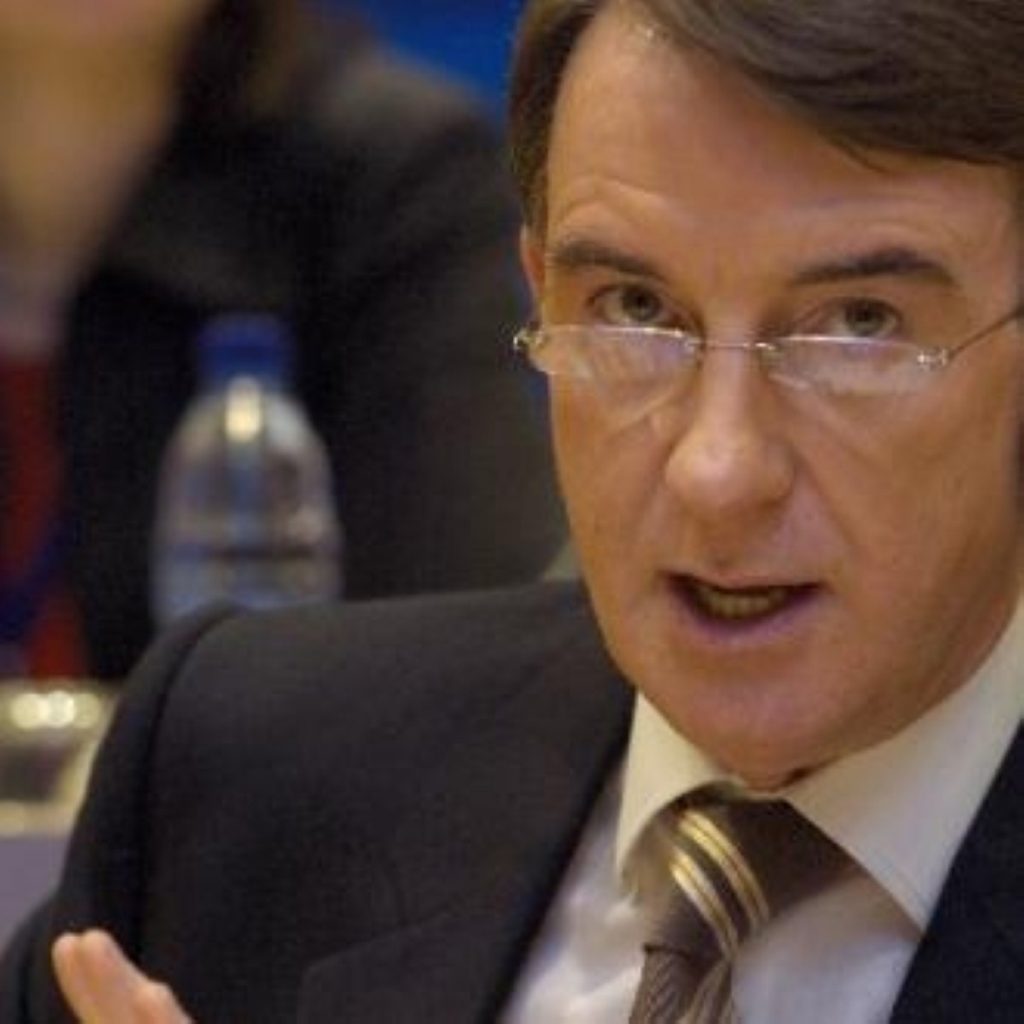Mandelson: Third time lucky
Peter Mandelson has entered Downing Street to take up a Cabinet position again, saying “third time lucky”.
One of the architects of New Labour and currently trade commissioner for the EU, Mr Mandelson’s return to government after two forced resignations has taken all observers by surprise.
“It’s not what I was seeking and it’s not what I was expecting but nevertheless it’s a great opportunity and a great challenge,” he told journalists outside Number 10.
Pushed on his relationship with Gordon Brown, he replied: “I get on with him fine, thank you very much.


“Of course we’ve had our ups and downs, but we’ve also known each other for over 20 years and we work well together.”
In a press conference this afternoon, the prime minister said: “We are reinventing government.”
Explaining his selection of Mr Mandelson, Mr Brown said he needed “serious people for serious times”.
He continued: “We are bringing together the best team possible.
“Britain can lead the world in coming out of the difficulties the world has.
“Peter Mandelson has proved in his years as a commissioner he has unrivalled experience.”
Mr Mandelson will take over from John Hutton at the Department of Business, Enterprise and Regulatory Reform.
A new department will be created dealing specifically with energy and climate change, headed by Ed Miliband.
Mr Hutton will take over from Des Browne as defence secretary. Mr Browne will leave government, despite being offered other positions.
Geoff Hoon, currently chief whip, will take over Ruth Kelly’s position as transport secretary. He himself will be replaced by his deputy Nick Brown.
The Mandelson move has taken all political observers by surprise. Mr Mandelson is a loyal Blairite who gets on famously badly with Mr Brown.
Mr Mandelson will probably have to become a Lord, given that he is not an MP. He will be replaced at the EU by Baroness Ashton, currently leader of the House of Lords.
John McDonnell, Labour MP for Hayes and Harlington said he was “utterly gobsmacked” by the move.
“What was the prime minister thinking when he did this?” he asked on the BBC.
“Peter Mandelson is possibly the most divisive figure in recent Labour history. I’m absolutely perplexed as to why he’s done this.”
Opposition parties also sneered at the move, with Danny Alexander, chief of staff to Lib Dem leader Nick Clegg, saying: “Gordon Brown is deluded if he thinks that Peter Mandelson can help him convince the British people that his party still has what it takes to govern this country.”
David Blunkett, former home secretary, said it was a wise move.
“It’s imaginative because it demonstrates to the country he [Gordon Brown] can be decisive, and ensure we’re caught unawares,” he said.
Apart form the headline changes, Mr Brown is also reshuffling many more junior ministerial positions.
Liam Byrne, immigration minister, will become Cabinet office minister after impressing Mr Brown in his previous brief.
Margaret Beckett will become housing minister after a one year stint on the backbenches.
She takes over from Caroline Flint, who becomes foreign office minister for Europe. Jon Cruddas, the veteran Labour left-winger who increased his political capital with an energetic conference presence, did not receive the Cabinet position many had predicted for him.
The ‘big three’ offices remain unchanged. Foreign secretary David Miliband, home secretary Jacqui Smith and chancellor Alistair Darling will all stay in their posts. Most senior positions, in fact, remain untouched.
The new National Economic Committee will be designed to unite ministers and leading industry figures with an eye to spotting future market trends and plan for government action. It will meet for the first time on Monday morning.
It is being compared to the emergency Cobra unit which convenes over events such as terrorist attacks or severe flooding, except the group will concentrate on spotting ailing banks and acting swiftly to save them.
Sir John Bond, the chairman of Vodafone, has become a ‘business ambassador’ but several of the business figures hired by Mr Brown when he entered Number 10 are now on the way out, including trade minister, Lord Jones of Birmingham, and environment minister, Lord Rooker.
Lord Jones – who refused to join the Labour Party when he became a minister – said: “I said when I took the job 15 months ago, I’d do it for the country, for the government, for my prime minister.
“It’s not a comment on him – I think his leadership is very, very good indeed.”












